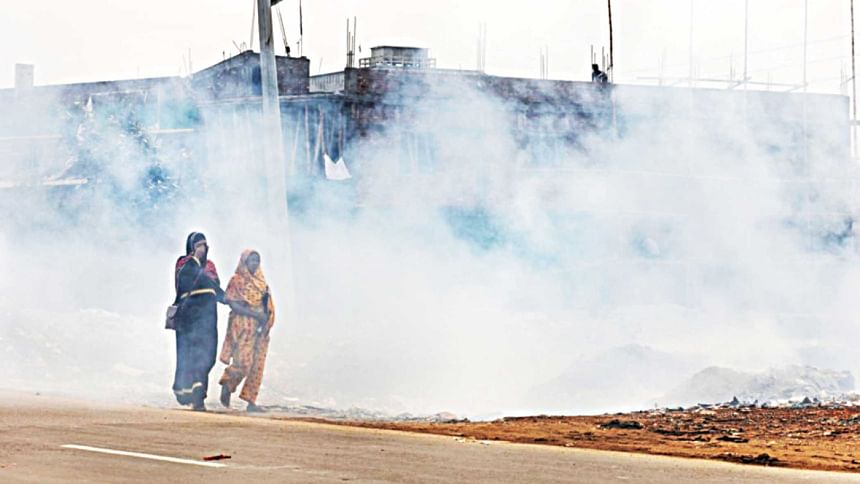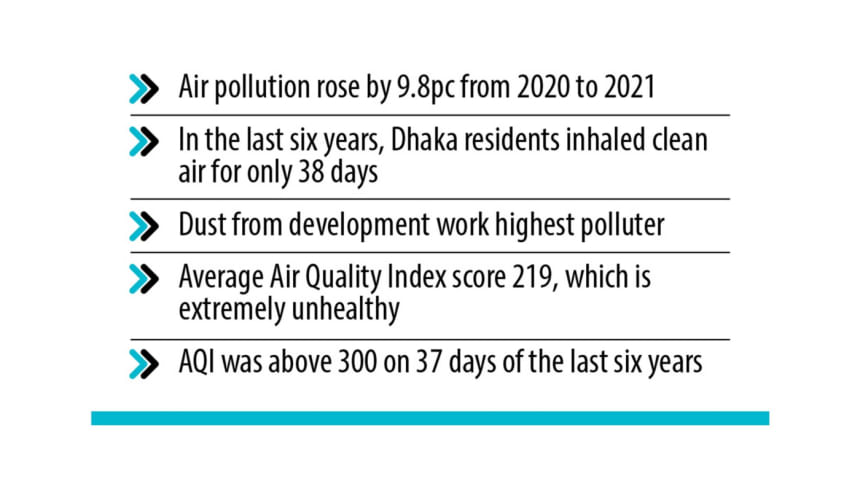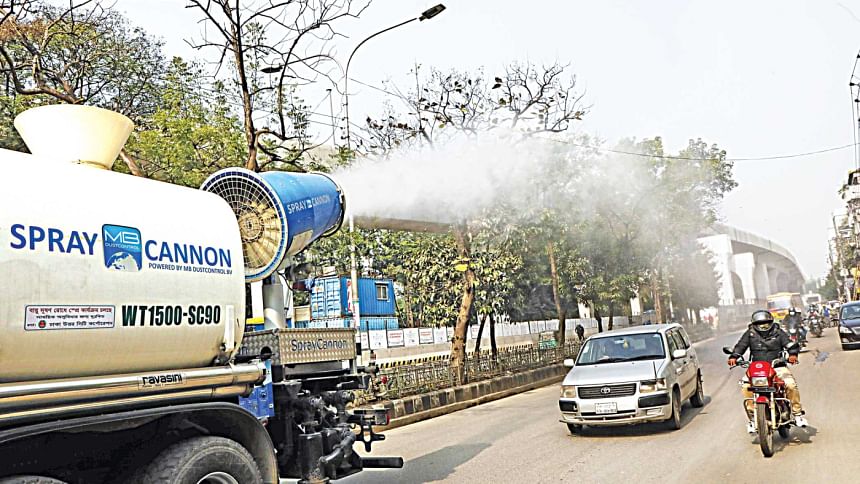38 days of fresh air in 6 years

Residents of the capital have inhaled clean air for only 38 days in the last six years, found a study, highlighting the gravity of the air pollution that over two crore people of the city are exposed to every day.
The alarming figures came up in a study conducted by Stamford University's Center for Atmospheric Pollution Studies from 2016 to 2021.

For the last six years, the average AQI (Air Quality Index) scores in Dhaka was 219, which falls in the category of extremely unhealthy, the report said. The permissible limit of clean air is AQI 0-50.
Dust generated from development work contributes 30 percent to air pollution, while about 29 percent of due to industries and brick kilns.
Ambient air pollution accounts for an estimated 4.2 million deaths globally per year. They die from stroke, heart disease, lung cancer as well as acute and chronic respiratory diseases.
The report, released yesterday, also stated that nights in Dhaka provide little relief from the pollution. "It was found that nighttime is riskier for residents than daytime, as the air quality nosedives at night due to multiple factors."
The reasons include trucks carrying construction materials and inter-district buses entering the city at night, city corporation workers sweeping the roads during that time, and the dip in temperature that allows dust to hang in the air for a longer time.
From 2020-21, air pollution has increased by 9.8 percent, the report stated, adding that it was mainly due to economic activities getting back on track after Covid-19 restrictions were relaxed.
Professor Ahmed Kamruzzaman Majumder, chairperson of Stamford University's environmental science department, who led the study, told The Daily Star that Dhaka's air starts deteriorating from 4:00pm, and pollution peaks around 2:00am.
"The air quality is better after 2:00am till 6:00am. Then it dips again from 6:00am to 9:00am, as office and school-goers hit the streets," he said at a press conference organised by Bangladesh Poribesh Andolon (Bapa) in the city yesterday.
Taking part in the discussion, Bapa General Secretary Sharif Jamil said Dhaka's AQI was above 300 on 37 days of the last six years, which is seriously hazardous for people.

"Under Environment Conservation Act-1995, when air quality deteriorates to such a level, the department of environment [DoE] must issue a warning to residents about this health hazards. We never saw any such notice or warning from it, which indicates their sheer negligence," he said.
He also alleged that foreign companies that are executing the country's mega projects do not comply with environmental guidelines, disregarding people's health.
The Daily Star called Ashraf Uddin, director general of DoE, and Md Asadul Haque, director (Dhaka metropolitan) of DoE for their comments. They did not receive the calls nor replied to texts.
The High Court on November 24 last year issued nine instructions to DoE, two city corporations and BRTA to make sure that waste-carrying vehicles, construction materials and construction sites are covered with tarpaulin, and that water is sprinkled on streets.
According to a World Bank study, air pollution kills 10,000 people in Dhaka alone every year, while 1,53,000 people die across the country.

 For all latest news, follow The Daily Star's Google News channel.
For all latest news, follow The Daily Star's Google News channel. 



Comments